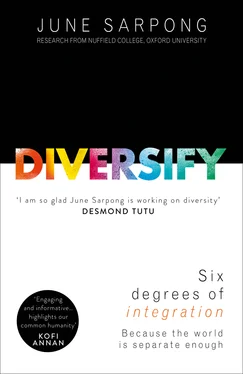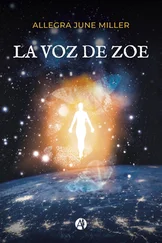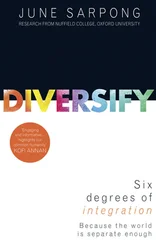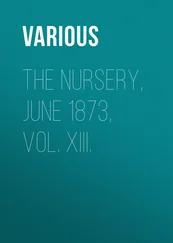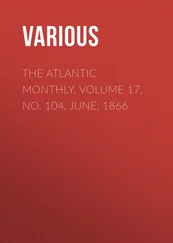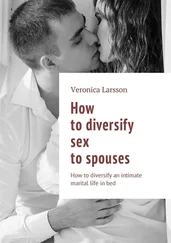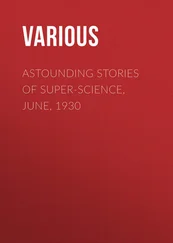Anansi is not the strongest creature on earth, but he is the most resourceful – he has to be to survive, right? Otherwise he ends up down a plughole or flattened by a newspaper. By using his wit and cunning, Anansi manages to catch all of these creatures. This involves some elaborate hoaxes and traps, but true to his word Anansi delivers to the Sky God the animals, and in return the Sky God gives Anansi the stories. Stories that Anansi goes on to share with the whole of humanity, spreading wisdom throughout the world. From that day on, Anansi grows in stature above all other creatures.
This story is dear to me because it tells us that when you have equal opportunity coupled with purpose and self-belief, anything is indeed possible. Even though the Sky God did not believe Anansi could complete the task, he gave him the opportunity anyway – the same opportunity he had given the previous, seemingly worthier, candidates, who had each failed. Fortunately, Anansi believed in himself, and with a little help from the Universe, he achieved the impossible. It’s this theory that I want to explore in more detail in this book – as well as how limiting beliefs about ourselves and each other prevent us all from achieving our full potential, and how society is robbed as a result. It’s the equivalent of mining for treasure: we are standing in a vast, mineral-rich landscape, but deciding only to dig a small section of the Earth, and so we’re missing out on all the gems the rest of the ignored land has to offer.
We have no template for a truly fair and equal society from any major civilization in recent history. In fact, we have to travel as far back as 7500BC to Çatalhöyük, a Neolithic settlement in southern Anatolia, Turkey, to see an example. Çatalhöyük is extraordinary for many reasons, not least its vast population (over 10,000 inhabitants), which makes it our first known ‘town’. However, perhaps its most notable characteristic was its inhabitants’ egalitarian ways and their lack of societal hierarchy. The town comprised an enclave of mud structures, all equal in size – there were no mansions or shacks. There was no concept of ‘rich’ or ‘poor’, no nobility or slaves, and no separate or lower castes of people. Men and women were considered equal with a balanced distribution of roles and participation in civic life.
Our so-called ‘civilized’ way of living would have us believe that a fair and inclusive society is wishful thinking – a naive or utopian idea. We are naturally programmed to follow the Darwinian theory of the survival of the fittest – a system that has only worked for a privileged few, caused social polarization and proved unsustainable. But as Çatalhöyük shows, this doesn’t have to be the conclusion. Its exact model is perhaps unrealistic in a modern capitalist society, yet we can incorporate some of the philosophies of our ancient ancestors and make our communities much more inclusive. We have the chance to change gear and move towards a more meritocratic model – a thrilling and exciting destination.
The old way isn’t working; the first country that gets this right will be a beacon to the world. The first economy that is efficient enough to capture the talents of all those available to contribute and utilize its greatest minds will produce a model that the rest of the world will be desperate to emulate.
My sincere hope is that the arguments, evidence, stories and tools in this book will help us to get there – to that Promised Land that Martin Luther King dreamed of. If we remember the story of Anansi, give each other equal opportunities, and believe in ourselves, we can achieve this seemingly impossible utopian ideal. Put simply, to make progress, we must diversify, transcend the six degrees of separation and move towards lives connected by six degrees of integration .
Because the world is separate enough.
PART ONE
THE OTHER MAN
‘It is easier to build strong children than to repair broken men.’
Frederick Douglass
The Old Way
Making up slightly more than half of the world’s population, women are probably the largest ‘other’ group – but it’s the ‘other’ man that I want to discuss first.
If you genuinely want to identify and understand the ‘other’ man (and the fact that you have chosen to read this book gives me confidence that you do), he is not hard to find. The ‘other’ man is a diverse group found across the Western world in working-class communities, blue-collar jobs, and weekend football matches. These are the men I was raised by and raised with. They have been taught from a young age not to cry, not to be a sissy, and to stand up for themselves. They are more likely to have been celebrated by their peers and perhaps even their teachers for their physical prowess than their mental agility. This other man is black, Muslim, or white working class, and each group is the victim of their ‘otherness’ in a different way. But each will have been taught early on to understand the importance of a man being able to provide for himself and his family – and each will have encountered barriers in trying to achieve this.
Discrimination against men is important to address because of the impact it has on the rest of society. The exclusion of the ‘other’ man can often have violent and devastating consequences. This isn’t always the case, obviously, but men have a different way of dealing with fear and frustration to women, as does each person to the next. Some of this is due to socialization, but some of it is pure biology. Leading neuroscientist Dr James Fallon explained to me that our genetics can result in striking differences in our response to stress, abuse, and rejection: ‘People with “vulnerability” forms of genes are extremely impacted … while those with highly “protective” [genes] are remarkably resistant.’ This suggests that some people are genetically more likely than others to develop damaging responses to environmental stressors, such as depression, PTSD, substance abuse, and personality disorders. And, says Dr Fallon, ‘males often [have] poorer mood and personality outcomes than females’. So men are in fact more vulnerable to exclusion than women, and no man – no matter how much he may have been taught to suppress his emotions – is immune to its effect.
We’ve seen this in action throughout the UK and US in recent years. The failure of these societies to prevent the economic and social exclusion of their ‘other’ men has weakened and divided communities, and created a ticking time bomb that we must deactivate. It has caused feelings of inferiority and led to a fractured society. It has compromised social mobility and created artificial bubbles whereby the situation you are born into dictates your job and educational prospects. It has opened the doors to radical groups, and nurtured breeding grounds of extremism. In short, it has led to a lack of diversity, which then leads to a lack of empathy on both sides: cue demagogues fanning the flames of division for political ends.
For it has been the exclusion of the ‘other’ man with muscle where it still counts – at the ballot box – that has had the most profound implications. In the UK, the white working-class male vote delivered the shattering of Britain’s 40-year union with Europe; in America, it brought the election of Donald Trump, a President with zero experience in public office and some unsavoury views and conduct. Whatever your opinion on either Brexit or Trump, 2016 provided the two most extreme examples in recent history of how a marginalized group can dictate the social and economic future of society.
And of course, politics aside, the exclusion of any ‘other’ man impacts more than just him. His family will share the impact of his pain – sometimes literally, if alcohol and low self-esteem are part of the toxic mix. This scenario played out within a family has a multi-generational impact, and can cost the state millions of pounds in welfare and social services professionals, called in to address family breakdown and deprivation. Failing to diversify and include all ‘other’ men is not something we can afford economically or socially. Quite simply, it will cost a lot less – financially, but also in pain and suffering – to expand opportunities to the ‘other’ man rather than continue to exclude him.
Читать дальше
